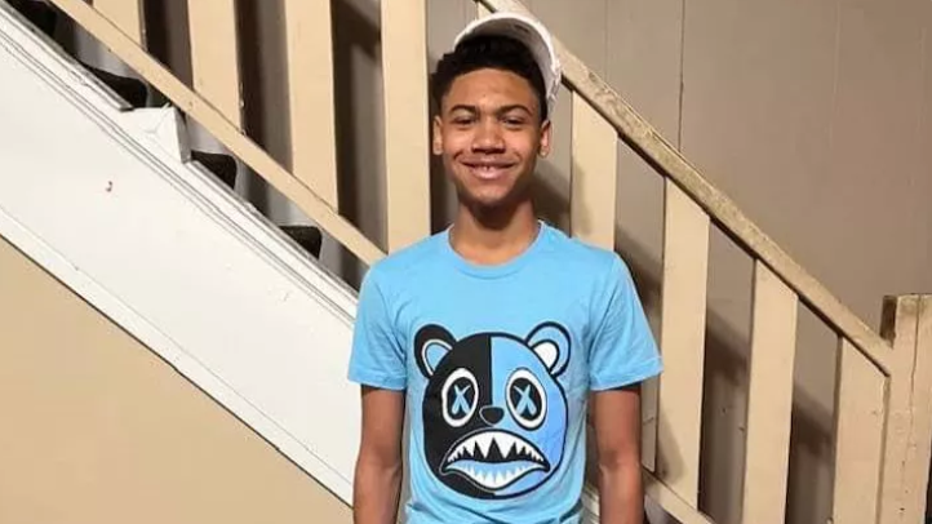Teen gets max sentence for deadly Arlington Lamar HS shooting
Arlington Lamar HS shooter given max sentence
The 16-year-old boy who admitted to killing a classmate at Arlington Lamar High School in March was sentenced to 40 years in a juvenile justice center.
FORT WORTH, Texas - The 16-year-old boy who admitted to killing a classmate at Arlington Lamar High School in March was sentenced to 40 years in a juvenile justice center.
Jurors deliberated for less than an hour before deciding on a punishment.
The case is in the Tarrant County Juvenile Court because the suspect is a minor.
The teenager, who was 15 at the time of the school shooting, faced a maximum sentence of 40 years behind bars for the murder of Ja’Shawn Poirier.

Ja'Shawn Poirier
Defense attorney Lisa Herrick said it was a hard case for the jurors as many showed tear-stained faces and some wiping eyes as the verdict was read.
"I can't imagine that this was an easy decision for them," she said. "This was very difficult and honestly their tears showed us that they took their decision very seriously, and we respect their verdict."
The teenager also sobbed and physically shook as prosecutor Lloyd Whelchel in his closing called the boy and his actions in March cold, calculated and purposeful.
"Then maybe this dawned on him the seriousness of what he did if it took six months. That speaks volumes as to who he really is," he said.
The 16-year-old girl who was hit by a buckshot pellet in her face and her mom spoke to FOX 4.
"As of right now, I do feel content with the verdict," the girl said. "It feels like he does deserve it even though he is a child himself."
The girl’s mother, an educator herself, says she has prayed for Ja'Shawn and his family as well as the boy facing 40 years and his family.
"Sometimes people, and not just children, but people have a hard time expressing themselves in a way to say, ‘I'm being hurt.’ But to hurt someone that is totally innocent is not okay," she said.
Psychologist Christopher Bellah testified Thursday morning about a psychological evaluation he performed on the suspect about a month after the shooting. He said he saw no indication of the teen being untruthful about the sexual assault he claimed he experienced earlier in life.
The defense suggested the shooting was in retaliation for a sexual assault attack in school, but Arlington police testified the claims were unsubstantiated.
The psychologist said the suspect has an IQ of 74 on a scale of 40 to 140. He called that very low and offered initial diagnostic impressions of the teen.

"Post-traumatic stress disorder, an unspecified disruptive impulse and control disorder and borderline intellectual functioning," Bellah said.
In cross-examination, prosecutors asked the psychologist if there was any correlation between the diagnosis and the teen's willingness to commit the crime. He answered, "No."
On Wednesday, the mothers of both the suspect and the victim.
Roshone Jacob recalled what she went through on the day her son was killed.
"All I remember is screaming and crying. I told my boss I had to leave, and I ran out of the building," she said," she said. "It's been very hard because I'm technically still trying to wrap my mind around it, and I'm stuck in this nightmare, trying to come out of it."
The shooter’s mother said there are no excuses for what her son did, and she believes he should face consequences.
"Accountability has to be given. A life was taken and even though this is my child, I love him. And accountability has to be given," said the teen's mother.
The defense was trying to convince the jury that the teen could be rehabilitated at a state juvenile facility.
Testimony wraps up in Arlington Lamar HS shooting trial
Dramatic and emotional testimony in the trial of a teenager who shot and killed another student at Arlington Lamar High School has wrapped up.
The prosecution pushed for a stiff punishment, pointing out the many disciplinary write-ups he’s been given while in juvenile detention for refusing to follow the rules.
Prosecutors showed jurors video of the teen trying to escape from the juvenile detention facility last month on the day jury selection was supposed to begin in the trial.
The teen will have another hearing when he turns 19 to determine if he should be released from the juvenile system or moved to an adult prison.
That decision will be based on his conduct and how well he's done on his rehabilitation track.


